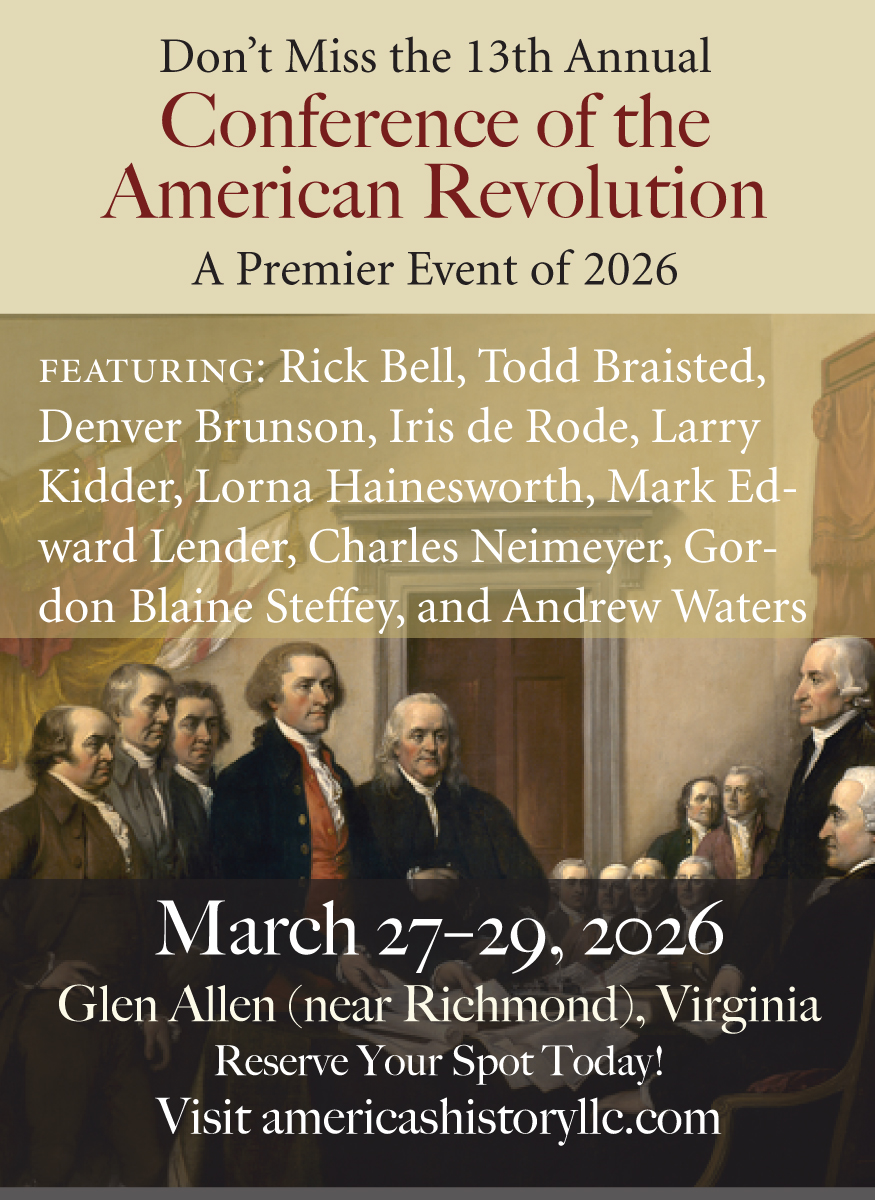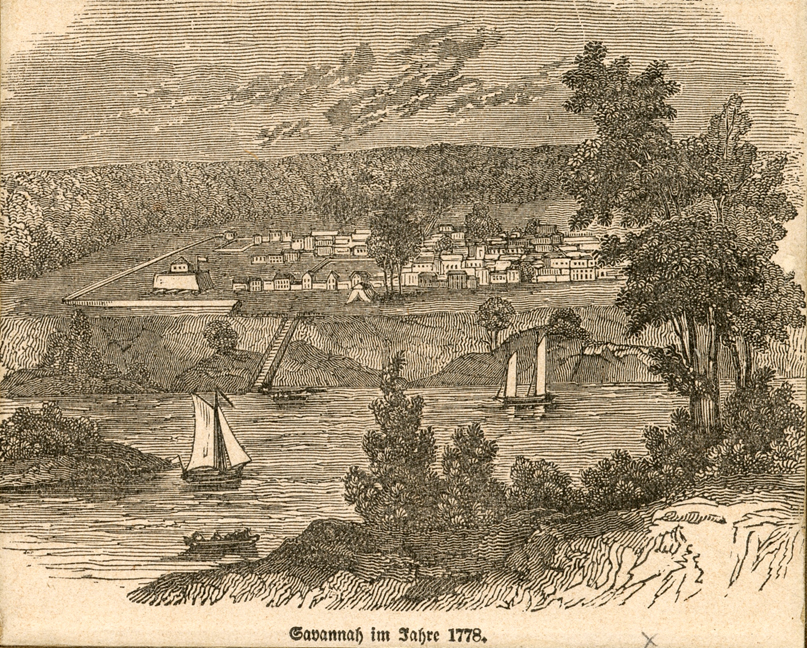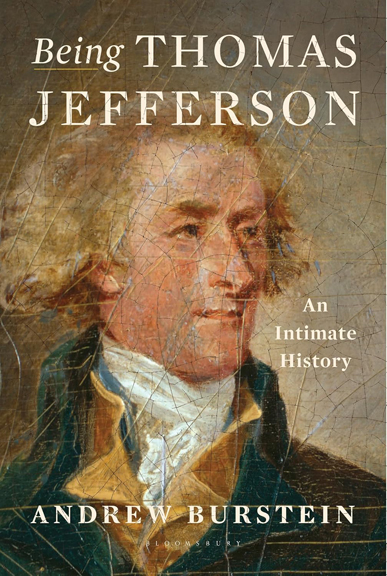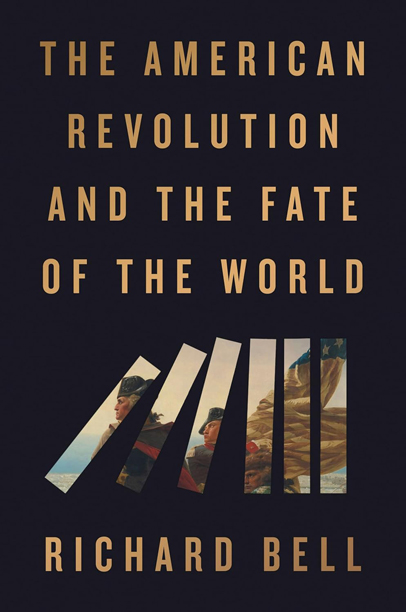Winston Churchill:
“History will be kind to me for I intend to write it.”
Almost without exception present day military commanders have heeded Winston Churchill’s advice.[1] Starting with Gen. H. Norman Schwarzkopf’s book on the First Gulf War, successive American commanders in the Middle East have written books describing their war strategies and emphasizing positive outcomes[2]. These volumes serve to enhance the generals’ reputations and to justify their tactics and judgments. Many of these books have generated large royalties and speaking fees for the authors.
Unlike modern military commanders, only two of the nearly eighty Continental Army general officers published book memoirs to record history from their perspectives. Differing in style from modern military autobiographies, these two diary-like, correspondence based accounts do little to explain command decisions and to increase the authors’ stature. A few junior Revolutionary War officers also wrote autobiographies and these are more critical, insightful and controversial. Similar to military commanders today, junior officers sought to record significant battlefield victories, to celebrate campaign accomplishments and to settle old scores. Rather than writing memoirs, most Continental Army officers boosted their reputation by preserving voluminous official papers and correspondence while obtaining exoneration for questionable military decisions through court martials[3]. In addition, subsequent family generations published career-enhancing accounts of their revolutionary forefathers.
Maj. Gen. William Heath published the first general officer memoir, fifteen years after the war’s conclusion[4]. George Washington encouraged Heath’s writing:
It gives me great pleasure to hear from yourself, that you are writing Memoirs of those transactions which passed under your notice during the Revolutionary War. Having always understood that you were exact and copious in noticing occurrences at the time they happened, a work of this kind will, from the candor and ability with which I am persuaded your notes were taken, be uncommonly correct and interesting.[5]
Further, Washington offered to be a book subscriber or purchaser, so he was clearly ingenuous. However, the book did not live up to Washington’s high expectations. It reads like a diary; it is fact based, dry, with little analysis, and lacks insights into command decisions. Jared Sparks, a notable nineteenth century historian, adds, “To skill in composition and elegance of style this book cannot lay the slightest claim; but as a record of facts chronologically arranged … it is not without merit.”[6]
Beyond composition and style, the Heath memoirs are not that interesting because he did not personally participate in many battles or comment on controversial events. In fact, Heath did not even take the opportunity to address his failure in his only combat command. In January 1777, Washington ordered Heath to attack Ft. Independence, an outpost guarding New York City, to draw British forces away from those facing Washington in New Jersey. Heath did not move fast enough, lost the element of surprise and did not maintain control of his forces during battle. Although this battle did not impact the war’s outcome, Heath was relegated to administrative roles and garrison duty and never again commanded men in battle. When published, Heath’s memoirs did not receive significant publicity and have since been largely ignored by the general public. Subsequent researchers have used his memoirs as a primary source to understand the administrative aspects of the Continental Army.
In 1803, William Moultrie became the second Continental Army general to publish his memoirs[7]. Unlike Heath, Moultrie’s memoirs are focused on the war in the south, the region in which he personally commanded troops and participated in several important campaigns. Similar to Heath, Moultrie mainly reprints his war correspondence and offers few new or unique insights into campaign strategy or battlefield tactics. For example, the politically connected Moultrie does not shed light on Maj. Gen. Benjamin Lincoln’s decision to defend Charleston against a combined British naval and army assault in 1780. It is commonly reported that Lincoln was unduly influenced by South Carolina political leaders to defend Charleston, rather than following the more prudent Washingtonian strategy of retreating inland in face of overwhelming British forces. Unfortunately, Moultrie does not offer a perspective on Lincoln’s decision-making that led to the largest American surrender during the Revolutionary War.
Moultrie’s stated reason for writing memoirs was to refute misstatements about the war and its participants[8]. As there is little interpretive and evaluative narrative, it’s not clear which specific misstatements he is addressing. Like several generals today, Moultrie sought money from the sale of books as he struggled financially in his later years. Moultrie even traveled to New York City to engage a publisher. When first published, Moultrie’s book did not garner significant literary acclaim and today his memoirs principally serve as a primary source for military orders and wartime correspondence.
Similar to the Continental Army’s general officers, only a handful of the thousands of famous and ordinary junior officers recorded their memoirs[9]. The few who did prepare memoirs were more eager to pridefully recount their exploits for posterity as opposed to the general officer practice of just preserving written orders and correspondence. These junior officers provided a richer historical record with more insights into command decisions and colleagues’ personalities. An example of a unique memoir style written by a relatively unknown officer is a series of letters written by Capt. Enoch Anderson to his nephew in 1819[10]. In these letters, Capt. Anderson of the Delaware line describes his war service between 1776 and 1779, highlighting his soldierly fortitude in the thirteen battles in which he participated and his patriotic and prideful commitment to achieving liberty for the colonies.
Relatively well known today, Col. Benjamin Tallmadge, whose contributions have been highlighted in the AMC mini-series TURN, wrote an account of his wartime service at the request of his children.[11] Tallmadge is most noted for his clandestine raids in the New York City area and for espionage activities including his role in uncovering Benedict Arnold’s treason. In his memoirs, Tallmadge clearly expresses his unwavering personal loyalty to Washington. He recounts a distain for Maj. John Armstrong, Jr., a member of Gate’s staff, and other members of the Newburgh Conspiracy for challenging Washington and the Continental Congress. Further, on Washington’s behalf, Tallmadge provides interesting accounts of his travels inside British lines to plan the turnover of New York City at the end the Revolution. In December 1783, he attends Washington’s farewell ceremony at Fraunces Tavern in New York City and remarks about Washington, “I loved and venerated him through life …”[12] Remarkably, with so many battlefield and espionage contributions to highlight, Tallmadge concludes his memoirs by proudly stating that he did not engage in the vice of dueling!
Lt. Col. “Light-Horse” Henry Lee penned the most comprehensive, literary and authoritative of the revolutionary officer memoirs and the one closest in style to those of today. After the Revolution, Virginia constituents elected Lee to a series of political offices including delegates to the Confederation Congress and the Virginia General Assembly, a term as governor and finally to a term in the United States House of Representatives. Due to his extensive political activity and ardent Federalist views, Lee’s Memoirs of the War when first published in 1812, was widely regarded as politically motivated. Contemporary readers viewed Lee’s memoirs as a way to discredit the Jeffersonian Democratic-Republicans.
In two short controversial passages, Lee paints Jefferson as an ineffectual war time governor who, despite many resources, could not defend Virginia from British invasion and also insinuates cowardice for fleeing in the face of the enemy. Lee hardly references Jefferson by name, but what he wrote is highly negative:
It will scarcely be credited by posterity, that the governor of the oldest State in the Union, and the most populous (taking for our calculation the ratio established by the present Constitution of the United States to designate the number of representatives allowed each state), was driven out of its metropolis, and forced to secure personal safety by flight, and that its archives, with all its munitions and stores, were yielded to the will of the invader, with the exception of a few, which accident, more that precaution, saved from the common lot. Incredible as the narrative will appear, it is nevertheless true.[13]
Jefferson spent the last years of his life refuting Lee’s charges. In fact, Jefferson’s last visitor before he died was Henry Lee’s son. Jefferson attempted to convince Lee’s son to revise the offending passages in a planned second edition. However, Jefferson’s suggested edits were not made, and the 1827 edition of Lee’s memoirs continued to paint Jefferson in a poor light.
Unlike the writings by other Revolutionary officers, Lee provides very direct and sometimes biting characterizations of his fellow officers. For example, he describes Horatio Gates as “mediocre,” Charles Lee as a “sublime genius,” Anthony Wayne as possessing a “robust, commanding presence” and Daniel Morgan as having a “discriminating mind, but not comprehensive and combining.” He also leveled praise and criticism on the senior British officers, calling General Burgoyne an “accomplished gentleman” and describing General Howe’s laggardly pursuit of a beaten Washington in the disastrous New York campaign as “mysterious inertness.” Subsequent historians have not been able to improve upon this last characterization.[14]
Similar to Moultrie, Lee published his memoirs to generate income. After his political career ended in 1801, Lee squandered most of his life savings on speculative investments and unsuccessful business ventures. In fact, Lee wrote his memoirs from the confines of debtor’s prison, assigning publishing royalties to relatives as a way to pay off creditors.[15] Unlike other Revolutionary War memoir writers, Lee supplemented his direct experiences and memories by obtaining wartime accounts from contributing colleagues to fill in gaps where he was not personally present or had a faulty memory. As a result, Lee’s memoirs have been highly regarded as an authoritative source by subsequent historians, especially those in the nineteenth century.
Although reticent to compose books on their experiences, American Revolutionary War officers took steps to preserve strong legacies and polish reputations. The most popular tactic was to retain copious correspondence and papers for posterity. George Washington and the other senior general officers considered the preservation of official papers and wartime correspondence to be critical to understanding their legacies. As a result, today’s scholars have access to catalogued and indexed personal papers for many Revolutionary War generals. This treasure trove of information is increasingly digitized and indexed making for easier and more fulsome access.
Further, unlike military commanders today, Revolutionary generals routinely requested court martials to formally exonerate them for defeats or controversial command decisions. Excellent examples of this image-restoration tactic include the courts requested to examine Gen. Horatio Gates’s devastating loss at Camden and Gen. Arthur St. Clair’s abandonment of Ft. Ticonderoga without a fight. In both cases, fellow officers cleared the losing generals of personal responsibility for the disastrous defeats.
In some cases, succeeding family members and other proponents retained and published war papers and correspondence to build upon their forefathers’ legacies. One of the best examples is an 1876 volume by Oswald Tilghman, a relative of Lt. Col. Tench Tilghman. Oswald starts with a brief biographical sketch. Oswald highlights Tench’s close relationship to George Washington, starting with his duties as a trusted and valuable aide throughout the Revolution and ending with a poignant account of Washington resigning his commission to the Continental Congress.
The remainder of Oswald’s volume principally reprints Tench’s account of his two most notable Revolutionary War contributions, a journal as Secretary to the Commissioners treating with the Six Nations and his diary from the Yorktown campaign[16]. Oswald supplemented Tench’s personal accounts with documents including Tench’s commission, war correspondence and letters written after the revolution’s conclusion.
Another good example of a family member burnishing the reputation of a revolutionary forefather is Caleb Stark[17] writing his father, Gen. John Stark’s, “memoir.” Caleb portrays his father as an intrepid leader of partisan fighters in the French and Indian War and a heroic battlefield commander in the Revolution. In other cases, politicians composed similar reputation-enhancing volumes such as the one Continental Congressman Edward Langworthy penned about Gen. Charles Lee.[18] Langworthy labels Lee as an “unfortunate general” and reprints General Lee’s Vindication to the Public, an attempt by Lee to influence Congressional approval of the military court martial’s verdict.[19] Langworthy concludes, “General Lee was a great and sincere friend to the rights and liberties of mankind.”[20]
In the end, it’s a shame that more Revolutionary War officers did not follow the practice of many modern military commanders who publish comprehensive and interpretative memoirs. Perhaps critical, but opaque Revolutionary War events would be better understood if Continental Army officers had followed modern practices. Interesting and vexing questions that might have been answered include: what role did Gates play in the Conway Cabal and the Newburgh Conspiracy? Was Charles Lee a traitor? What was George Washington contemplating the night before the sneak attack on Trenton? If these generals left richer contemporaneously-written records, maybe we would have answers to these questions.
Self-managed answers, however, come at the price of potentially introducing biased evidence into the historical record. With the extensively archived personal papers and official correspondence, most Revolutionary officers left us a historical record with less perceived self-promotion than today’s leaders.[21] George Washington stated this objective on his deathbed to his personal secretary:
He said to me, ‘I find I am going, my breath can not last long. I believed from the first that the disorder would prove fatal. Do you arrange and record all of my late military letters and papers. Arrange my accounts and settle my books, as you know more about them than any one else, and let Mr. Rawlins finish recording my other letters which he has begun.” Six hours later, Washington was gone.[22]
Revolutionary general officers focused on preserving their official correspondence to record important activities as opposed to burnishing contributions with self-serving interpretations. This provides a good lesson for both military and civilian leaders today: if you accomplish great things, the record speaks for itself and there is no reason for spin.
[1] Churchill’s quote has been cited in this form for so long, it has taken on legitimacy. The original quote from a speech to House of Commons on January 23, 1948 is “For my part, I consider that it will be found much better by all Parties to leave the past to history, especially as I propose to write that history”.
[2] H. Norman Schwarzkopf and Peter Petre, It Does Not Take a Hero: The Autobiography of General H. Norman Schwarzkopf (New York: Bantam, 1993).
[3] Today, the public has less access to military officer papers and correspondence due to national security classification which did not exist in Revolutionary times.
[4] Sean M. Heuvel edited the most readable edition. Sean M. Heuvel, The Revolutionary War Memoirs of Major General William Heath (Jefferson, North Carolina: McFarland & Company, 2014). Heuvel provides a preface and introduction to orient readers. Further, he organizes the memoirs in yearly chapters and modernizes spelling for better readability.
[5] George Washington to William Heath, May 20, 1797, Founders Online, accessed January 18, 2016.
[6] Jared Sparks, The Writings of George Washington (Boston: Ferdinand Andrews, 1839), 11:200.
[7] William Moultrie, Memoirs of the American Revolution: So Far as related to the States of North and South Carolina, and Georgia (New York: Printed by David Longworth, 1802).
[8] C.L. Bragg, Crescent Moon over Carolina: William Moultrie and American Liberty, (Columbia, SC: University of South Carolina Press, 2013).
[9] The author received expert assistance in locating junior officer memoirs from Katherine A. Ludwig, Librarian at the David Library of the American Revolution in Washington Crossing, PA.
[10] Henry Hobart Bellas, ed., Personal Recollections of Captain Enoch Anderson, (Wilmington, DE: Lippencott, 1896, reprinted by New York Times and Arno Press, 1971).
[11] Benjamin Tallmadge, Memoir of Col. Benjamin Tallmadge (New York: Thomas Holman, 1858, reprinted by New York Times and Arno Press, 1971)..
[12] Ibid., 61.
[13] Henry Lee, Memoirs of the War in the Southern Department of the United States (Washington, DC: Peter Force, 1827), 191-2.
[14] For additional characterizations of Revolutionary War participants, see the Appendix attached to Lee’s Memoirs of the War.
[15] Citations are from the 1827 edition published by Henry Lee’s son, which is principally the same as the 1812 first edition.
[16] Oswald Tilghman, Memoir of Lt. Col. Tench Tilghman, Secretary and Aid to Washington (Albany, NY: J. Mansell, 1876).
[17] Caleb Stark, Memoir and Official Correspondence of General John Stark (Concord, NH: Edson C. Eastman, 1877).
[18] Edward Langworthy, Life and Memoirs of the Late Major General Lee (New York: Richard Scott, 1813).
[19] Ibid., 31.
[20] Ibid., 61.
[21] Today, historians have difficulty in properly evaluating military commanders’ memoirs as National Security classifications can inhibit access to critical documents.
[22] National Endowment for the Humanities: The Washington Papers, http://www.neh.gov/about/awards/national-humanities-medals/the-papers-george-washington, accessed January 23, 2016.









6 Comments
I am skeptical of memoirs written decades after the war ended – when the result was known and the heroes and villains established. Authors can easily embellish their role in events. The Tallmadge memoirs are especially suspect, since they were published 23 years after his death and the handwritten version (besides 12 pages at Massachusetts Historical Society) does not seem to exist. How do we know Tallmadge wrote any of it? Why would the family wait so long after his death to publish it, then throw away the manuscript? The famous story of Washington’s farewell at Fraunces Tavern, as published in Tallmadge, is merely a reprint of a newspaper article, thus the whole farewell ceremony itself may be fake. We want to believ it happened, nut no one who was “there,” apparently, said it happened in their lifetime.Thus I argue that memoirs are generally suspect and should not be used as sources.
I prefer to use contemporary records of the people and events being researched but all too often we don’t really have those items available. Even though there are a number of good generals and politicians on both side who kept wonderful records, there are also a lot of gaps in the coverage. Particularly in the southern campaigns we have trouble with conflicting accounts and biased memoirs. Unfortunately, we don’t have anything better to work with and try to piece things together.
That said, I totally agree that the memoirs are a problem. Henry Lee’s accounts are notoriously bad but so are the alternatives. We simply do our best. I particularly enjoy reading in the Notes of Colonel Richard Winn. You know, to hear Col Winn tell it, he was really quite a guy. 🙂 And its really amazing how big a contribution Col’s Hammond and Hill made to the war effort. Somewhat surprising they actually needed any help at all. 🙂
Just poking a bit of fun at the expense of my personal favorites, the Patriot partisans of the south.
Thanks Wayne and Will for your comments and for extending the discourse. I’ll have to look at Winn’s notes as they sound entertaining. And one can imagine that Tallmadge writing for his children might embellish a bit! Further many documents called memoirs are really re-creations by adoring relatives or venerating writers.
Both of you seem to be in violent agreement with Churchill!
Gene, you can find a dandy transcription on Winn’s notes by Will Graves at: http://revwarapps.org/scx2.pdf
While at the Southern Campaigns website you might notice my recent paper on the Gwinnett v McIntosh feud will be the feature article for the next few weeks. 🙂
Gene, obviously I’m behind in my reading but I enjoyed this. Nobody probably wishes Moultrie had included more insightful narrative than I do, but I can say this: he did not omit correspondence in which his actions were criticized, nor did he use his memoirs to make excuses or boast. I’ve had the opportunity to look at many of the original documents that he included and he was accurate in his renditions of them.
Thank you for making an excellent point, Chip. Moultrie, like other Revolutionary War leaders were focused on preserving their wartime correspondence for posterity which provides a rich base to interpret revolutionary events.